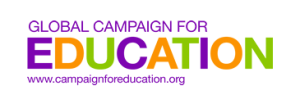
Following the publication of the proposed global indicators – by which governments will measure their efforts to deliver the Sustainable Development Goals – 214 civil society organisations, academics, and education professionals across the world have voiced their concerns that the indicators for education threaten the vision for every child to complete 12 years of free primary and secondary education. Among the signatories are the Malala Fund, the organisation co-founded by education activist and Nobel Peace Prize Laureate Malala Yousafzai; the Kailash Satyarthi Children’s Foundation, founded by child rights activist and Nobel Peace Prize Laureate Kailash Satyarthi; international, regional, national, and grassroots human rights and development organisations; and members of the Global Campaign for Education.
“By 2030, ensure that all girls and boys complete free, equitable and quality primary and secondary education leading to relevant and effective learning outcomes”: this is the first target of the SDG for education, and – crucially – it commits governments to providing free, quality education for 12 years. However, the indicators that have been selected to measure progress on this goal capture neither the importance ofcompletion of primary and secondary education, which obliges countries to attend to the population of out-of-school children, nor that these 12 years must be free. Instead, the proposal is only to measure learning achievement through standardised testing at early grade, end of primary and the end of lower-secondary education. The omission of completion of education, which must be free, significantly alters the nature of the target, and lowers the agenda’s overall ambition.
The inclusion of learning assessments at early grade levels is another cause for concern. Letter signatories, including the World Organisation for Early Childhood Education, expressed that such assessments directed towards small children could negatively impact the development of a child’s personality and of critical thinking, ultimately undermining the wellbeing of children at an early age. These concerns are also well-reflected in General Observation 1 of the Committee on the Rights of the Child.
Camilla Croso, President of the Global Campaign for Education, which coordinated the letter, stated:
“The incredible efforts of governments, UN bodies, and civil society activists – working collectively – resulted in a Sustainable Development Goal for education which we all believed would give every child, adolescent, youth and adult a serious chance to realise their right to free, inclusive, quality education. The unanimous adoption of the SDGs was a moment we celebrated, but today, just six months later, this vision is being threatened. Our demands are not controversial – we simply want an indicator which reflects the goal and targets to which the world has already agreed.”
The indicators, which have been selected by the Inter-Agency and Expert Group (IAEG-SDGs), are being discussed by the UN Statistical Commission this week, 8-11 March, in New York. Following this, the next meeting of the IAEG-SDGs is to be held in Mexico at the end of June. The letter has been addressed to members of both the Commission and the IAEG-SDG in a bid to revise this indicator before they are proposed to UN Member States for final adoption.
The letter and full list of signatories is available here. http://www.campaignforeducation.org/docs/statements/Education_Civil_Society_IAEG_SDGs_FINAL_EN.pdf









 Users Today : 48
Users Today : 48 Total Users : 35460179
Total Users : 35460179 Views Today : 65
Views Today : 65 Total views : 3418848
Total views : 3418848